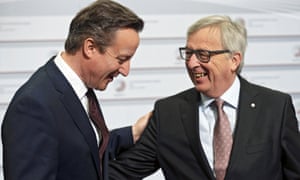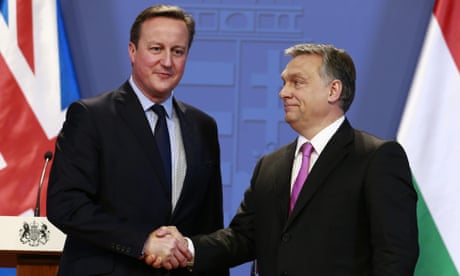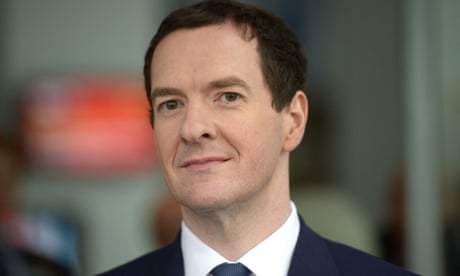Mark Nicholas in Cricinfo
"I thought I could add value and I'd like to believe I have added value. I'm really surprised some people have suggested it was not my choice. You don't look like me in this world without being firm on what you want to do." - Hashim Amla, one week ago
There was something almost chilling about it: "In this world." An unfair world. A world where Muslims are mistrusted because a radical few threaten the perception of a beautiful faith. Amla's journey has long been challenged. The beard. The objection to wearing a beer sponsor's endorsement. Apartheid. That backlift! And more. Yes, a singular man.
To relinquish the cricket captaincy of your country is a painful thing. Many have shed tears. Many more have felt the sweat from their neck and the quiver of their lip. A lifetime's ambition tossed away out of choice.
But neither the many, nor the many more, have had as much at stake as Amla. He stands for an ideal. He speaks for the marginalised. He is hope. He is strength. He is faith. His elevation made all things possible. But he chose to give it away. He confirmed this invasive and weighty position was not for him.
Of course he added value. Each moment spent with Amla is valuable. His calm is an ever- present, a blessing. He speaks wisely and on an even keel. Amla will tell you that it is never as good as you think it is and it is never as bad as you think it is. In the age of confident youth, his counsel is worth its weight in runs.
The trouble was, no runs. A period of famine at a time of defeats withers the mind. For South Africa, the runs mattered most. Thus, on top of the sheer overload of responsibility came the fear of failure. It is a captain's bad dream. Silly, really. Years of dreams to get you there and then night after night with dreams that examine your ability to cope.
Probably - and this notion comes without evidence - Amla was the choice for a nation that needed his background to make a statement. Transformation comes in many forms but if the leader represents its credentials, the on-sell is more straightforward. AB de Villiers was one choice, Amla the other. If the choice is too difficult to call, go with the better messenger. Better still go with Amla, who is the message. In his heart he must have known this. What a burden.
He did just fine, representing his people with honour and commitment. He had some bowlers, though not the depth of attack given to his predecessors. He won some series and then came badly undone in India, a spill that cost his country the treasured record of not having lost away from home since 2006.
The clue to his mind was in the way it applied itself to batting. In India, all he could dare was frozen defence. Set free, few men have used a bat to express themselves so accurately. Amla has an untroubled rhythm and flow. He plays thoughtful innings that reach crescendos and then return to their foundations so that each part is rebuilt in the anticipation of overwhelming performance. These innings adapt to their environment and to the format for which they are intended. In them he unites South African discipline with Asian flair, and vice versa - the perfect hybrid. But in India there was none of this. Indeed, he appeared broken. Against the spinning ball on pitches of wretched bounce, block after rigid block tortured his soul.
He might have survived his own assessment had the first Test against England, in Durban, been less stressful, or simply had a better result. But no. He was back in India, fighting to survive something he knew was lost. And that something was his conviction that he could do the job better than the next man. Without it, the game was up. At the press conference announcing closure, he said as much.
It might seem odd that he stood down having made 200 in Cape Town and saved the game. But he made 200 because he had already released his mind. In a single decision he had come from unbearable weight to the lightness of being. No mask, no message, just an innings with clear purpose and a rewarding conclusion.
Much is asked of international captains. Some treat these questions lightly; Brendon McCullum for example. Others wear them better than imagined; Misbah-ul-Haq for sure. One or two close shop: MS Dhoni is a man of smoke and mirrors. A few bunker down and later emerge rebooted: Alastair Cook. Occasionally a heart is worn magnificently on its sleeve: think Graeme Smith.
Smith's part in the new age of South African cricket is a remarkable sporting story. By his own estimation, it took five years to be any good at the job. In that time he learned more about himself than he thought was there. He was utterly without prejudice and therefore above suspicion. He was able to separate political issues from performance; to forgive if not forget; to rally and to cry. He spoke comfortably of shortcomings and shrewdly of ambition. Perhaps most notably, he converted a suspect and awkward batting technique into a mechanism for sustainable and substantial run-making.
Amla must have wondered how on earth he did it all. But there was a difference. Smith represented something already there. Amla was the chosen face of something long fought for but still not achieved. About that there remains great bitterness. So much so that cricketers of the past - those who represented South Africa before and during isolation - are not recognised by the regime of the present. I'll wager Amla hates that every bit as much as Smith mourns it. In the world occupied by the two most recent out-going South African cricket captains, all men are equal.
While Haroon Lorgat, the CEO of Cricket South Africa, resolutely denies quotas at international level, the agenda is clear. But it is not organic. In a Machiavellian way, Amla was a ticket. De Villiers is not. South African cricket is at the crossroads. The next route taken may define its place at the top table of the game. Amla simply could not reconcile such a responsibility alongside the need to win tosses and take a gamble; give speeches; make life-changing decisions for and about players; hold catches; stop boundaries; score runs and sleep tight.
His decision was made for the greater good and for personal harmony. It is a brave thing to abandon a dream. And a smart thing. His stock has risen and his impression will hold firm. De Villiers is a wonderful alternative and his voice must be heard. South African cricket is lucky to have such men in their ranks. It would be wise to give them equal standing and a decisive say in the future.
Meanwhile, the former captain's resilience and clarity have made South Africa stronger than a week ago. England will be more than aware of this.
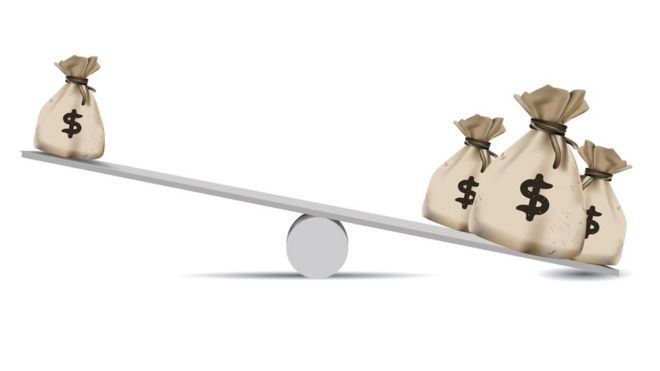 iStock
iStock
The richest 10% of Americans earn half of all of income. In Britain, the top 10% hold 40% of all the income.
Inequality isn't just an issue for rich countries: a billion people have been lifted out of poverty since 1990, but inequality has also been rising in many countries too.
Four experts talk to the BBC World Service Inquiry programme about the effect inequality has on growth and prosperity.
Deirdre McCloskey: Capitalism is not the enemy
Deirdre McCloskey is Distinguished Professor of Economics, History, English, and Communication at the University of Illinois at Chicago. The daughter of a Harvard Professor, her brother became a university cleaner.
"You can't force people to take advantages that are placed in front of their nose, and that's my brother's case. No amount of income redistribution or socialist schemes to give my brother more opportunities would have made any difference at all to his life.
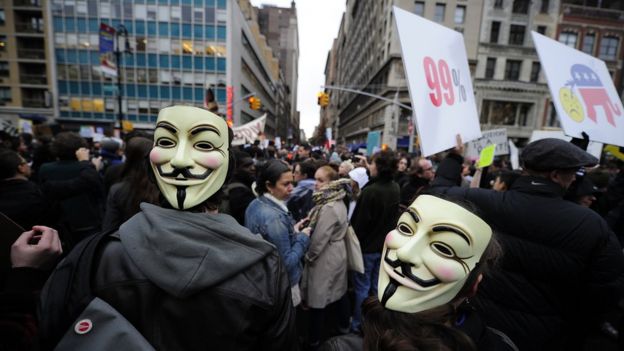 Getty Images
Getty Images
"If people strive, some of them succeed and get rich, at least momentarily until other people strive and compete with them. This striving turns out to be good for all of us.
"The percentage of people in the world living on $2 (£1.30) a day - an appalling level of income - has halved in the last 30 years. That's not by foreign aid or redistribution. It's by letting the economy function in a more innovative way.
"The wrong way to cure inequality is to attack the people who are taller, or have better parents, or live in richer countries. The way to do it is to uplift the poor. I approve of being taxed to help the very poor. But I don't want to kill the goose that laid the golden eggs. Capitalism is not the problem, it's the solution.
"The growth in the last couple of centuries has been astounding. It's a factor of 30 - about 3,000% per head for the average English or American person. Explosive, unprecedented growth. Meanwhile, inequality has gone up and down a little bit.
"If you were to make a rule that the chief executive could only earn 50 times the shop floor employee, that would not reduce inequality substantially.
"I'm very relaxed about [inequality] as long as it's not force or fraud that caused it."
Jared Bernstein: Inequality impedes growth
Jared Bernstein is a senior fellow at the Center on Budget and Policy Priorities in Washington DC, and a former economic advisor to President Obama.
"I was a member of the President's economics team during the worst recession we've had since the Great Depression. The responsibility to try to turn that around was huge.
"This wedge of inequality between growth and the income of working families undermines the basic incentive that hard work will be rewarded.
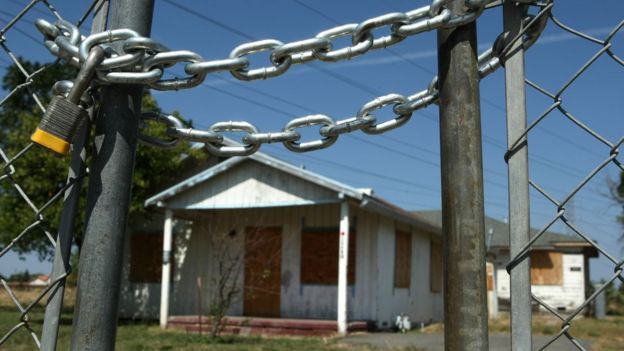 Getty Images
Getty Images
"I call it the shampoo cycle - bubble, bust, repeat. And because middle and low income families lack the income growth they used to see, they borrow to make the difference. That creates large leverage bubbles which explode and hurt growth.
"Once wage inequality gets too high, and you have lots of low income people stuck in tough neighbourhoods that are segregated by income and race, and they have fewer libraries and a more difficult learning environment, you begin to see this connection between high levels of inequality and barriers to opportunity.
"You don't necessarily see that in today's economy because that's a cumulative process, but it's very possible that we'll see that in economies 20 years from now when these children come into the job market.
"If you go back to the period where productivity and incomes for middle class families were growing together - in the US that would be back to the mid 1970s - you'll see that the top 1% held about 10% of all income.
"Now it's 20 times that. That's too much. I'm not saying we necessarily have to get back to the late 1970s level, but I do think that a good metric here would be that the income of middle income families would grow closer to the rate of productivity growth, and that's something that we haven't seen for a while."
Jonathan Ostry: Opportunity more important than inequality
Jonathan Ostry is deputy director of the Research Department of the International Monetary Fund.
"We don't have a threshold level for how much inequality is too much. We don't have a magic number. Sometimes a rise in inequality is perfectly compatible with healthy growth and prosperity, and in other cases the rise has gone way too far.
"When China opened up, it not only took off in terms of economic growth, but there was a marked and quite significant increase in income inequality. I'd be prepared to venture that was a good increase in inequality. Sometimes you need to have a little bit more inequality in order to get growth going as part of deregulating of your economy.
 Getty Images
Getty Images
"Think of the very high levels of inequality that prevailed in Brazil when President Lula came to office, and the steps he took with the Bolsa Familia conditional cash transfer programmes. His policies were successful without jeopardising economic growth.
"I would want to be sure that in a country with a lot of inequality those at the bottom still had opportunities to be well-educated, to have adequate nutrition, and were not shut out from credit and banks. Likewise if there was a fair degree of equality, but nevertheless those at the bottom didn't have adequate opportunities, I'd be concerned.
"So for me it would be more a question of whether there were adequate opportunities for the less well-off in society. Provided that was the case I wouldn't be overly concerned that a given level of inequality was causing great harm.
"[However] it turns out that income equality is an important factor in separating countries that have been successful at sustaining growth for long periods, versus those that have enjoyed spurts of growth which have fizzled out rather quickly. Too much inequality can undercut the ability to sustain growth.
"In more equal societies, those that are more socially cohesive, governments are able to take measures that have buy-in from the population at large. Therefore they can right their economies more quickly.
"In more unequal, less socially cohesive societies, people don't buy the notion that if the economic ship is righted, everyone will benefit. They're more likely to oppose the painful short-term measures that governments need to take to right the economic ship. And so righting that ship becomes much more difficult in less equal societies."
Branko Milanovic: Beware rising inequality within countries
Professor Branko Milanovic has spent his career studying inequality, and is now a visiting professor at the City University of New York.
"We need inequality. Perfect equality, everybody having the same income, doesn't exist anywhere, nor has it. Obviously some countries - maybe China during the cultural revolution - came relatively close, but some inequality has always existed.
"Without inequality you lack incentives to do practically anything - to work, to invent new things or to invest. Nobody is going to do things for nothing and we know that monetary rewards are really crucial, so this is the good part of inequality. We should not forget that inequality is indispensible for the development of a society.
"Globalisation has been very good for the middle classes in the emerging markets - China in particular, parts of India, Thailand, Indonesia. They are still not level in terms of income with the middle class in the rich world, but it's improving, On the other hand, we have essentially a stagnation of middle class incomes in rich countries, a very interesting and a potentially politically destabilising development.
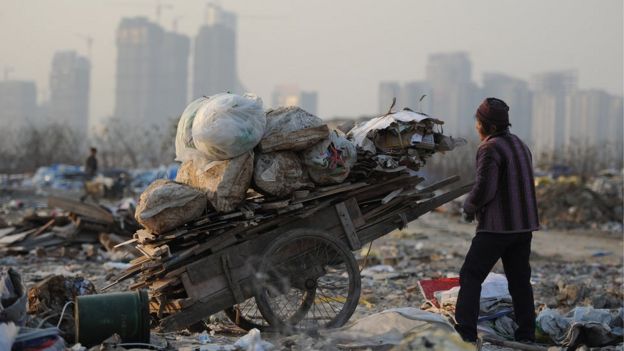 Getty Images
Getty Images
"If the gaps keep on increasing as they've increased in the last 20 years, you would end up with two types of societies within a single country. If there is no sufficient middle class and if the poor really are very far from the rich, then you really cannot speak of a single society.
"We could end up with a kind of a global plutocracy, this global one per cent or even half a per cent that are very similar among themselves, but really belong to different nations.
"We might have a situation that most of global inequality is due to inequalities within nations which was more or less the situation 200 years ago. So we may be really going back to the situation that existed before the industrial revolution."
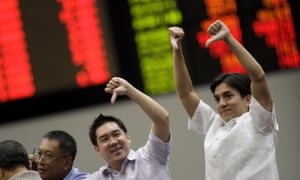
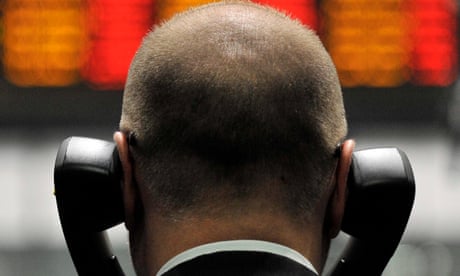
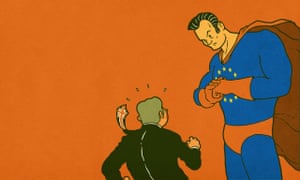
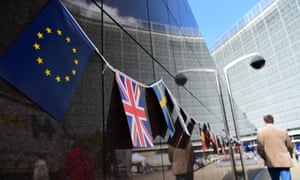
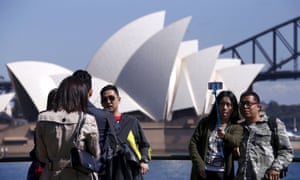
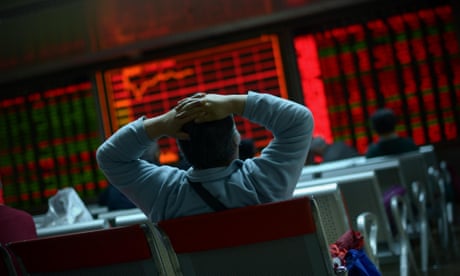
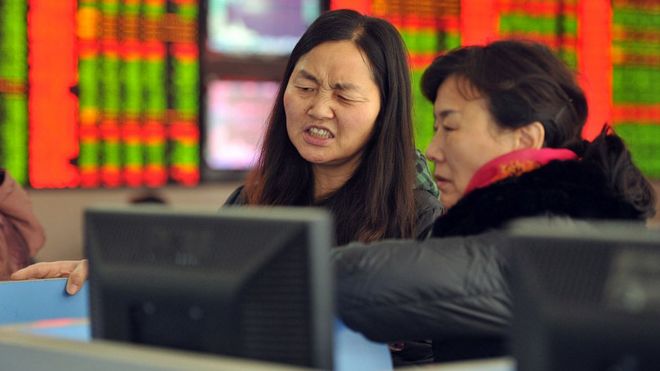 Image copyrightAFP
Image copyrightAFP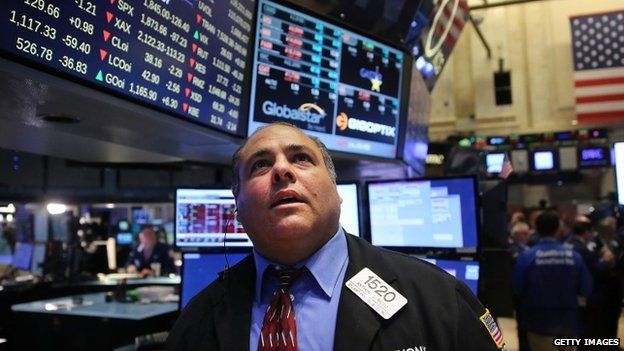 Image copyrightGetty Images
Image copyrightGetty Images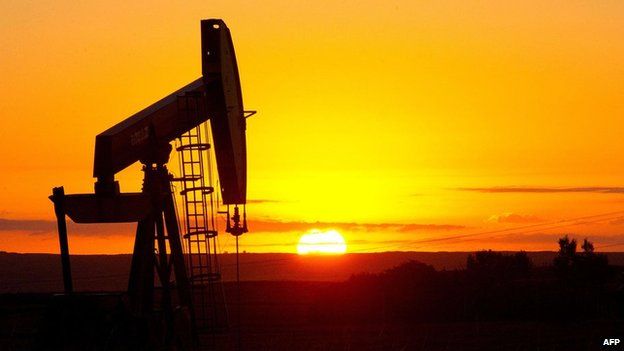 Image copyrightAFP
Image copyrightAFP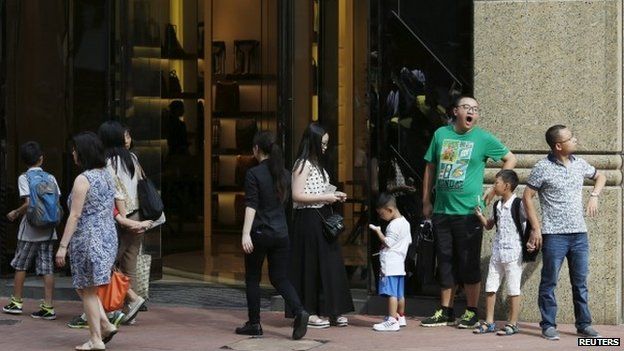 Image copyrightReuters
Image copyrightReuters